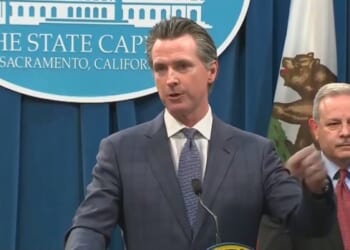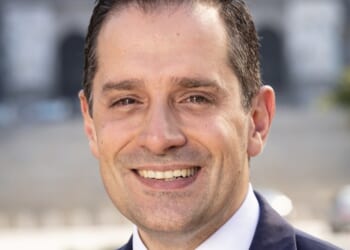This article originally appeared in The Detroit News Sept. 9, 2025.
Michigan’s State Board of Education has selected Glenn M. Maleyko to be the state’s next superintendent of public instruction. The superintendent serves as the principal executive officer of the Department of Education and is responsible for implementing the board’s policies. The role is so important that it’s spelled out in the state constitution.
Maleyko, currently the superintendent of Dearborn Public Schools, takes Michigan’s top education job at a crucial moment. Here are seven questions he’ll need to address.
One: “How will Michigan reverse the poor academic performance of K-12 public schools?” Student reading and math scores have been flat or falling in recent years, especially after the COVID-19 school closures.
According to scores released last month, 61.1% of third graders failed the annual assessment, even worse than last year. Fourth grade reading scores fell also, with 57.6% of students failing to demonstrate proficiency. Poor reading scores in early grades compromise a student’s ability to succeed in later grades.
Two: “Why is student achievement falling when Michigan taxpayers and parents are paying more for education?” The state’s per pupil spending has increased 35% over 10 years, according to my colleague Molly Macek, who reviewed data from the National Public Education Financial Survey.
The number of school employees (teachers, administrators, support staff) climbs upward — 381,571 employees in 2024-25, up from 323,318 a decade ago. Meanwhile, school enrollment has spiraled downward for decades — 1,427,386 students in the 2024-25 school year, compared to 1,550,802 ten years ago.
Three: “How should school districts measure teacher effectiveness?” Michigan recently abandoned a rigorous method of assessing teachers. That move weakens the profession and fails to serve students.
Four: “How will we train students for the economy of tomorrow instead of the economy of yesterday?” Michigan is doing little to innovate in public education. While other states are embracing competitive models that reward the best schools and best teachers, Michigan’s constitution prohibits the same sort of experimentation. That should change.
Five: “Should the state continue offering universal ‘free’ school meals?” Gov. Gretchen Whitmer frequently boasts about offering meals to all students, regardless of income. But as the economists like to say, there’s no such thing as a free lunch — the costs are merely transferred to someone else. All this program does is subsidize middle- and high-income families; low-income students were already eligible for the federal free and reduced lunch. Given that education dollars are limited, is this the best way to use the money?
Six: “What should schools do about cellphones in the classroom?” Policymakers, educators and parents are wrestling with this across the country. Whitmer has called for a statewide rule that would limit cellphone use in schools. Should it be a one-size-fits-all policy or should we invite local school districts to make this decision?
Seven: “Should Michigan opt in to the new school choice program?” Congress recently created a new education tax credit that allows individuals to contribute to scholarship-granting organizations. This would enable families to pursue private educational options without shouldering the full cost. The catch: States must opt in to this program. It is ultimately the governor’s decision whether to opt in, but the superintendent can influence the public narrative.
As the new superintendent of public instruction, Maleyko won’t make the final decision on most of these items, but he will enjoy a prominent bully pulpit, advising the governor, legislators and the public on a wide range of educational issues. Time will tell whether he is a champion of the status quo or a champion of high standards and results.









